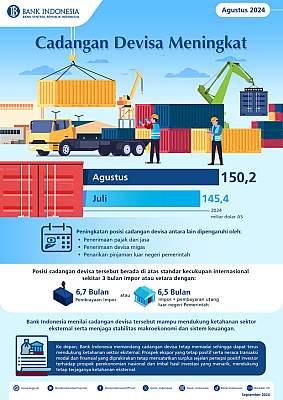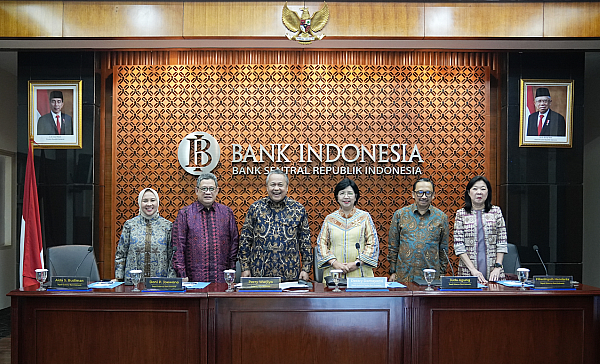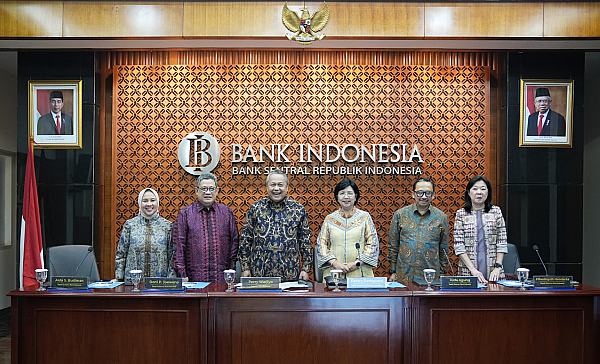Foreign Exchange Reserves Soar, Rupiah Gets More Powerful

Indonesia's foreign exchange reserves continue to rise. As of August 2024, the reserves reached USD 150.2 billion, an increase of nearly USD 5 billion compared to the end of July 2024, which was recorded at USD 145.4 billion.
In comparison to May 2024, Indonesia's total foreign exchange reserves have increased by more than USD 10 billion. In May 2024, the reserves were reported at USD 139.0 billion, subsequently rising to USD 140.2 billion in June 2024.
According to a written statement from Erwin Haryono, Assistant Governor/Head of the Communication Department of Bank Indonesia (BI), on Friday (September 6, 2024), the increase in August 2024's foreign exchange reserves is attributed to tax and service revenues, foreign exchange earnings from oil and gas, and the government's external loan withdrawals.
The foreign exchange reserves position as of August 31, 2024, is equivalent to financing 6.7 months of imports or 6.5 months of imports and government external debt payments. "This is above the international adequacy standard of approximately 3 months of imports," stated Erwin.
BI assesses that these reserves are capable of supporting external sector resilience and maintaining macroeconomic stability and the financial system of Indonesia.
"The positive export outlook, a surplus in the capital and financial account, and attractive investment returns (Indonesian bonds) contribute to the sustained external economic resilience of Indonesia," BI's statement elaborated.
The surge in foreign exchange reserves has strengthened the rupiah. At the beginning of trading on Friday (September 6, 2024), the rupiah opened at Rp 15,388/USD, appreciating by 0.08 percent compared to the closing value of Rp 15,401/USD on Thursday (September 5, 2024). This appreciation marks the best performance of the rupiah this year.
Other Asian currencies also experienced gains, with the Philippine peso leading at 0.41 percent. This was followed by the Taiwanese dollar at 0.22 percent, the Thai baht at 0.17 percent, and the Japanese yen at 0.11 percent. Conversely, the Hong Kong dollar weakened by 0.03 percent, the Chinese yuan by 0.02 percent, and the Singapore dollar by 0.001 percent.






